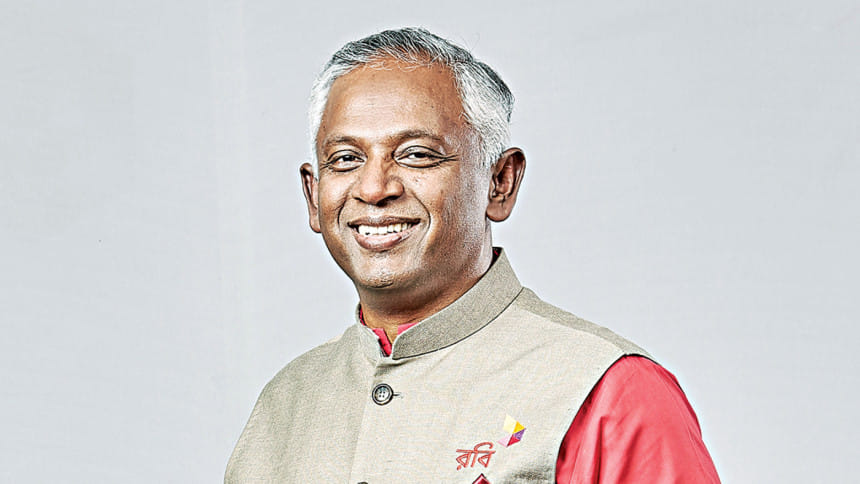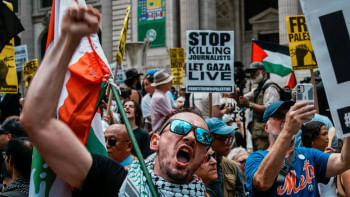No cash, no corruption

Money lives two parallel lives. For the poor villager, it hides in the folds of a lungi, under a mattress, or in the holy corner of the rice jar, because who needs banks when you have God? Meanwhile, the rich gentleman (read: political or business elite) does not believe in such simplicity. His money takes the first flight out—to Dubai, Singapore, London—anywhere but here. The result? One half of the nation is literally sleeping on cash, while the other half is ensuring that Bangladesh itself remains penniless.
Now let's check the numbers. Only around 35 percent of Bangladeshis have access to financial accounts, compared to 80 percent in India and 95 percent in China. Mobile financial services (MFSs) are booming, but mostly for sending Tk 500 from son in Gazipur to mother in Rangpur, not for replacing mainstream banking. The irony? An economy of nearly $450 billion still runs on crumpled banknotes. Why? Because a massive black economy, worth an estimated 30-40 percent of gross domestic product (GDP), thrives on cash. No receipts, no taxes, just vibes.
Our banks love to talk about going digital, even rushing to apply for digital bank licences, but in reality, they still run on apps slower than Dhaka's internet on a rainy day, and branches are drowning in paperwork older than the customers. Then comes the MFS monopoly. One player has done a great job, but when one player holds nearly 80 percent of the market, competition and innovation wither away. True cashless means traceability; every transaction becomes a breadcrumb for the taxman. But would our business tycoons and political elites, fuelled by black money, ever allow their finances to be tracked? That's like asking a cat to wear a GPS collar.
India, despite its chaos, successfully implemented demonetisation in 2016, giving a significant boost to unified payments interface (UPI), which now handles 14 billion transactions monthly. Indonesia has built digital payment ecosystems that extend beyond one or two players, ensuring innovation and consumer choice. Both countries realised early that cashless is not just about apps; it is about accountability, trust, and, yes, political will—something rarer in Dhaka than punctual trains.
Cash does not leave a trail: no VAT, no tax, no awkward questions. It is not about convenience; it is about invisibility. I have seen it first hand: wealthy businessmen casually paying restaurant and grocery bills in thick wads of cash, ignoring the ease of cards. One well-known official from a 'prestigious' government body, famous more for corruption than service, never touches a credit card, not even when traveling abroad. Even local corporates prefer to pay salaries partly in cash and partly through accounts, keeping everything nicely hazy. Put all this together, and it feels less like we are moving towards a cashless society and more like we have proudly shifted into a cash-full economy with reverse gear.
Meanwhile, developed nations are moving beyond both cash and cards. Apple Pay, Google Pay, facial recognition—swipe is passé. Yet here, we are proudly tapping a plastic card as if it were cutting-edge. If Bangladesh wants to leapfrog, it needs bold reforms, including interoperable platforms, digital ID integration, tax incentives for digital payments, and, above all, the political courage to face the wrath of the cash kings.
Bangladesh has the ingredients: a young population, mobile penetration, and a booming economy. What we lack is the willingness to kill the golden goose of cash-based corruption. Until then, we will continue to see two Bangladeshis: one storing notes in a lungi, the other laundering them through London. A truly cashless Bangladesh is possible, but it will require our leaders to give up their favourite hobby: hiding wealth as if it were a national sport.
And perhaps that is why conversations around a cashless Bangladesh matter so much. It is not just another policy debate; it is a test of whether we want to move from cash-heavy chaos to cashless clarity. Until then, the joke's on us: our economy may not be cashless, but it is definitely clueless.
The writer is the president of the Institute of Cost and Management Accountants of Bangladesh and founder of BuildCon Consultancies Ltd

 For all latest news, follow The Daily Star's Google News channel.
For all latest news, follow The Daily Star's Google News channel. 



Comments